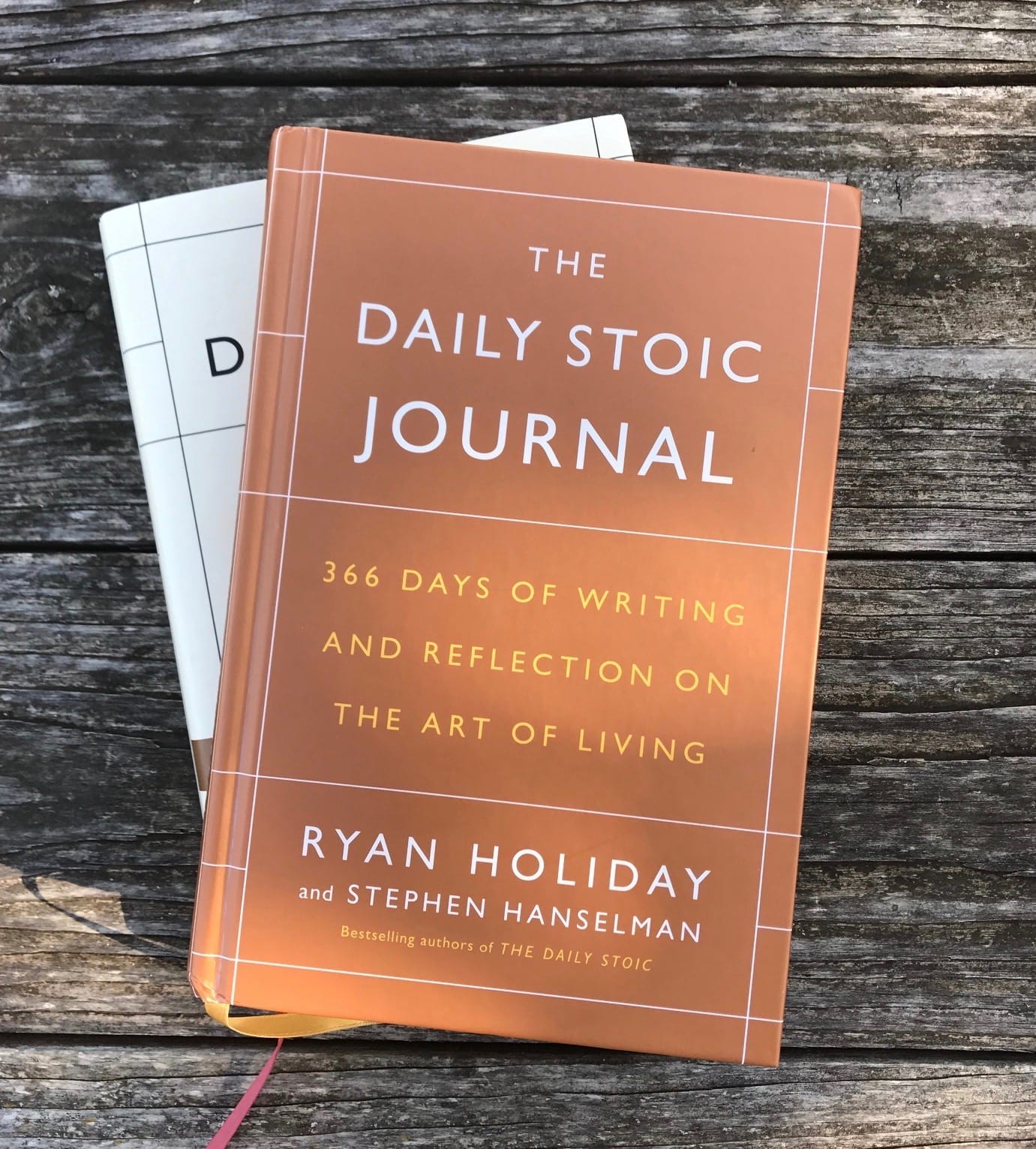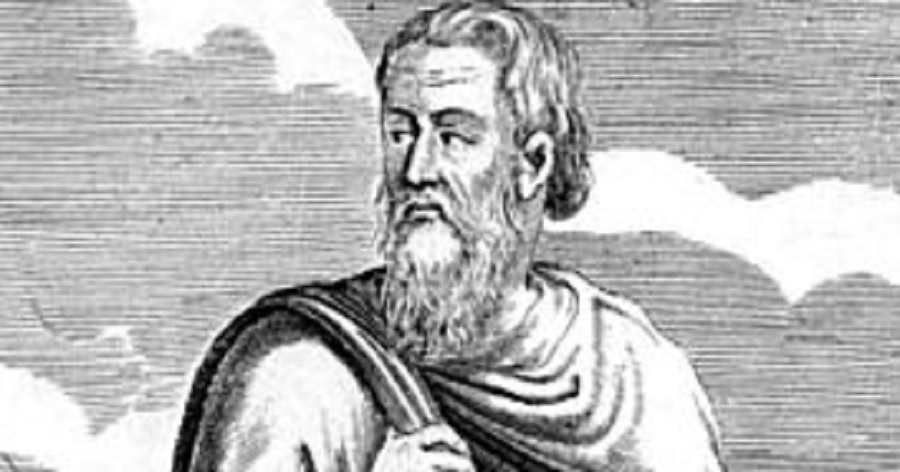Monthly Archives: January 2019
Review: The Daily Stoic
StandardI wasn’t intending on writing this review for some time. My plan was to read the Daily Stoic reader, and use the journal for the better part of a year before making a review. I’m most of the way through January, however, and I believe I have enough of a feel for the two books to review them adequately.
 I liked that the journal meshed with the daily reader, that’s a nice touch. The journal is three prompts and a short space to write what you’d like related broadly to the reading for the day. It was a little disappointing that each day is mostly just a re-hash of the previous days. I was expecting some else, but it is what it is.
I liked that the journal meshed with the daily reader, that’s a nice touch. The journal is three prompts and a short space to write what you’d like related broadly to the reading for the day. It was a little disappointing that each day is mostly just a re-hash of the previous days. I was expecting some else, but it is what it is.
For the Daily Reader itself, I cannot any longer recommend it. I had previously described some of these style books as fine introductions, the shallow end of the Stoic swimming pool. However, in reading through the Daily Reader, there are recurring … misinterpretations of core Stoic doctrines. Most of these are fine business practices and mindsets for the self-help go-getter. But Stoic positions, they ain’t.
I’ll be removing the Daily Stoic from my list of Stoic Books, which wasn’t something I was really ever imagining I’d do.
I don’t wish the author any ill well, or anything like that. But it seems to me as if when his work adopted the Daily Stoic brand, it jumped a shark. These works are not Stoic works, they are business oriented self-help and mindset training programs. As such, I do not recommend them to the practicing Stoic.
Channeling Seneca, ameliorated by Epictetus
Standard“There is pain in the foot, and a tingling sensation in the joints; but we still hide the complaint and announce that we have sprained a joint, or else are tired from over-exercise. Then the ailment, uncertain at first, must be given a name; and when it begins to swell the ankles also, and has made both our feet “right” feet, we are bound to confess that we have the gout.”
— Seneca, Moral Letters 53

Today a bit of Stoic remedy helped me. It was nice to find that after an absence, when I reached out philosophy was still there. I’ve been dealing with hyperuricemia (commonly called gout) for the past four years. It’s a kidney problem in which those organs are unable to adequately filter the blood, leading to high levels of uric acid. This form crystals which lodge in the joints, cutting into the tissues there and causing swelling. As the tissues swell, they cut more and more, recursively. Eventually, the swelling becomes so severe that the affected joint begins to dislocate.
About 60% of this problem is genetic, the remainder from lifestyle choices. Foods high in purines metabolize creating uric acid, so dietary control is a key factor. Triggers are highly idiosyncratic.
Gout is the most painful thing I’ve ever experienced. It recalibrated my “1-10” scale. It is difficult to describe, or relay the pain. In a bad flare-up, there is no comfortable position, even the weight of a bedsheet is unbearable. The pain is so intense, I cannot read or watch TV. I can only experience the pain. It shuts everything else out.
When I first got diagnosed, I undertook some experiments to find the triggers. Common ones include meat, red meat, shell fish, lentils, cauliflower, alcohol. I ate a vegetarian diet for two months, then introduced meat excepting red for two months. I abstained from cruciferous vegetables for two months. I avoided alcohol for two months.
After about half a year, I determined that hops (like in India Pale Ales) were problematic, as was high fructose corn syrup.
Avoiding these two things has helped, but not entirely reduced the attacks. Soemtimes I’ll months without a flare-up, other times I’ll have three in two weeks.
During a flare-up, I cannot usually walk. The joints of the feet, my ankles, and occasionally knee are affected.
So, why a discussion about a medical issue? I’m having a flare-up today, and while I was waiting for a ride home to get emergency meds, a miscommunication occured and I thought briefly I was going to be left behind.
A creeping sense of panic began to set in, and I found a sliver of space to recognize this anxiety as an impression, and not the thing itself.
I remember the words of Epictetus:
“Lameness is a hindrance to the leg, but not to your ability to choose. Say this to yourself with regard to everything that happens, then you will see such obstacles as hindrances to something else, but not to yourself.”
— Enchiridion 9.
I repeated them several times, and wiggled into that mental distance between the impression of anxiety, and the reality of the situation.
I was borrowing trouble from the future, but what I needed to do was exercise my normal will in the here and now.
So I stood a moment in the stairwell, looked at the pain, and felt calm. I had the tools to handle this situation.
I reached out, and found philosophy there to lend her hand.
Seneca mentioned gout, as well as another other classical philosophers. So it’s an interesting situation that we, separated by so much time and space, often find ourselves handling many of the same issues.
MMRP: Book IV, Chapters 21-31
Standard“And now hear what consolations can be offered on the other side by one who has not embraced the doctrines either of the Cynics, or of the Stoics—-who only differ from the Cynics by a shirt…”
— Juvenal, Satire XIII.16
Staniforth cites this section, as Marcus references it in Chapter 30. However, the Roman Satirist may seem to be incorrect in regards to man’s social nature at first brush, right? They Cynics are known misanthropes! However, I think we’ll see a bit more similarity than might at first be apparent.
As I mentioned previous, I’ve been reading a good bit from Navia on Diogenes of Sinope and classical Cynicism. One of the claims we see about the Hellenistic Cynics, and their paragon even more so, is what can appear to be a hatred of humanity. Diogenes’ constant haranguing of the people, his disregard for social obligation, his lewd gestures and action all might lead us to suspect that The Dog hated people. But this is the shallowest of readings.
 If Diogenes had hated humanity, why would he have spent his entire philosophical life among them, providing an example in extremis of what was sufficient for virtue? Why would he search for an honest, or true human? Why would he try to make them better than they were, and better even than they saw themselves?
If Diogenes had hated humanity, why would he have spent his entire philosophical life among them, providing an example in extremis of what was sufficient for virtue? Why would he search for an honest, or true human? Why would he try to make them better than they were, and better even than they saw themselves?
The only reason that makes even the slightest bit of sense to me is because he loved them. He loved people. We find ourselves more frustrated and caught up in the happenings of our family and friends than we do the passerby, or random story on the news. Why? Because we love these, and thus their faults, misgivings, and suffering is the more poignant to us.
I suspect the same is true for Diogenes.
Marcus constantly reminds himself, in essence, to love and to act out that love for others. To accept the role the cosmos has ordained, and to educated or put up with those who fail. Ironically, Diogenes must have already achieved this love, albeit expressed in a … strange fashion.
 The Cynic, then, instead of being an asocial hermit finds herself in the thick of it as much as a Stoic! She’s trying for many of the same social benefits. The difference then comes down to the doctrine of indifferent things, which the Stoics espouse and the Cynics deny.
The Cynic, then, instead of being an asocial hermit finds herself in the thick of it as much as a Stoic! She’s trying for many of the same social benefits. The difference then comes down to the doctrine of indifferent things, which the Stoics espouse and the Cynics deny.
Despite Juvenal’s tongue being planted firmly in cheek, it’s actually a pithy distillation of a doctrinal difference, but what’s more the point is all of the other similarities.
So, whether or not you’re shirtless, this obligation to social activity is just as important.
This post is part of Michel Daw’s Reading Plan of Marcus’Meditations.
2019: Tips for a Εὐδαίμων New Year
Standard Time marches on, the sands of the hourglass continue to fall. We’ve made yet another trip, as a planet, around our sun. As a small aside, it’s interesting to me how many religious and cultural traditions mimic this act with circumabulation about central objects of importance, a microcosmic reflection of the order of the cosmos.
Time marches on, the sands of the hourglass continue to fall. We’ve made yet another trip, as a planet, around our sun. As a small aside, it’s interesting to me how many religious and cultural traditions mimic this act with circumabulation about central objects of importance, a microcosmic reflection of the order of the cosmos.
I wanted to begin this new year, not with resolutions, but with advice: for myself. One of the exercises I first attempted when beginning on my Stoic journey a half-decade ago was a series of modern dialogues with a hypothetical Sage. I remember being a bit surprised that I had good advice for myself at the time. The figure of the Sage is a useful tool in the Stoic Toolkit, and I wanted to pick it back up and try it again.
So, without further ado, here are several Stoic tips for the προκόπτων for a Εὐδαίμων New Year, directed to me (which you may appreciate also) :
- Set aside specific times for reading, contemplation, and philosophical exercise.
- Inculcate a series of habits and spiritual exercises for the training to virtue.
- Actually test impressions and thoughts with the tools you have. You must actually do the thing to yield the result.
- Set aside the desire to acquire more books, and instead acquire a deeper understanding of the texts you already have.
- Set up patterns or triggers for reminding yourself to apply the doctrines of our school.
- Meet with a greater force the effort to stagnate or be lazy with a desire towards progress. You have trained yourself in one direction for a long time, to right course now takes an extreme correction to have a moderate effect.
- Identify small things in which you can progress to build the momentum to address the larger
- Continue to maintain and build fellowship and association with others focused on similar goals.
- Be open to helping more, so far as your abilities allow, when asked. Until then, practice silence as much as possible.
- Assume that others are acting in good faith, and meet that with your own. If proven the opposite, remember that those who do evil do so against their will.
- Apply Hierocles’ Circles of Affinity in daily life: treat people with greater kindness.
- Set up a time for mediation/contemplation, as well as moderate physical exercise. You have found it true in the past that both of these are conducive to better states of mind for the practice of philosophy.
If you have any suggestions for yourself, feel free to share those in the comments.
* * *
If you’ve found some value in the posts here, I humbly request you consider supporting the blog on Patreon. Thank you for your readership.
MMRP: Book IV, Chapters 5-20
StandardWhew, there’s quite the spread of topics here. We’ll stick to one topic: the beautiful, ὁ κάλως. This word can often be interchangeably translated as “good” or “beautiful.” Marcus is stating the position that beauty (read: goodness) is intrinsic, and nothing is made better or worse by praise.
I’m reminded of Epictetus’ injunction:
“If you want to improve, be content to be thought foolish and stupid with regard to external things. Don’t wish to be thought to know anything; and even if you appear to be somebody important to others, distrust yourself. For, it is difficult to both keep your faculty of choice in a state conformable to nature, and at the same time acquire external things. But while you are careful about the one, you must of necessity neglect the other.”
— Epictetus, Enchiridion 13
This seems to be the rougher side of the coin to what Marcus is reminding himself. Most folks see the teachings of Epictetus echoed in Marcus, but just as the figure cut by Diogenes is an almost hyperbolic example of Socratic teaching: Marcus often seems to be the applied version of the more “extreme” Epictetan example.
It continues to impress me how these folks 2,000 years separate from us have such a keen understanding of human nature. Of course we will seem different from the average when we’re seeking to right ourselves. Of course that will be a hard pressure to resist. Of course that will elicit both scorn at the outset and potentially after a time admiration as well. Of course we must prepare ourselves for both of these impressions.
We do this by building in ourselves the skill of judicious discrimination of impressions. Whether it is praise or scorn, if the feedback does not relay accurate moral information to us, it is nothing. So set aside the beauty of the horse, the scorn of the passerby, and the fawning praise of others: because we’ve got work to do. Work on ourselves, work for the good.
* * *
If you’ve found some value in the posts here, I humbly request you consider supporting the blog on Patreon. Thank you for your readership.
This post is part of Michel Daw’s Reading Plan of Marcus’Meditations.

You must be logged in to post a comment.